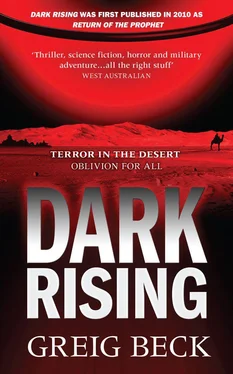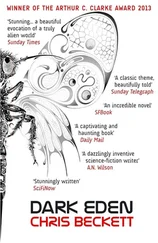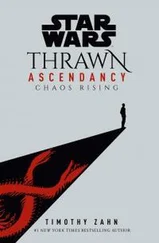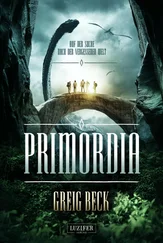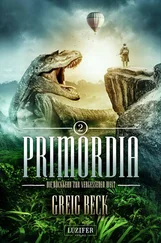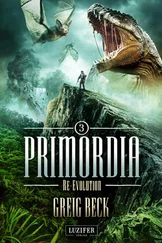Greig Beck - Dark Rising
Здесь есть возможность читать онлайн «Greig Beck - Dark Rising» весь текст электронной книги совершенно бесплатно (целиком полную версию без сокращений). В некоторых случаях можно слушать аудио, скачать через торрент в формате fb2 и присутствует краткое содержание. Жанр: Триллер, на английском языке. Описание произведения, (предисловие) а так же отзывы посетителей доступны на портале библиотеки ЛибКат.
- Название:Dark Rising
- Автор:
- Жанр:
- Год:неизвестен
- ISBN:нет данных
- Рейтинг книги:3 / 5. Голосов: 1
-
Избранное:Добавить в избранное
- Отзывы:
-
Ваша оценка:
- 60
- 1
- 2
- 3
- 4
- 5
Dark Rising: краткое содержание, описание и аннотация
Предлагаем к чтению аннотацию, описание, краткое содержание или предисловие (зависит от того, что написал сам автор книги «Dark Rising»). Если вы не нашли необходимую информацию о книге — напишите в комментариях, мы постараемся отыскать её.
Dark Rising — читать онлайн бесплатно полную книгу (весь текст) целиком
Ниже представлен текст книги, разбитый по страницам. Система сохранения места последней прочитанной страницы, позволяет с удобством читать онлайн бесплатно книгу «Dark Rising», без необходимости каждый раз заново искать на чём Вы остановились. Поставьте закладку, и сможете в любой момент перейти на страницу, на которой закончили чтение.
Интервал:
Закладка:
Greig Beck
Dark Rising
ONE
Beneath the ruins of Persepolis, modern Iran
‘Are you ready to witness history being written, my friend?’ Mahmud Shihab appeared from the back of the canvas tent like a ghost. ‘Salem Agha-ye, Hakim,’ he said softly and kissed the military man on each cheek before grasping his upper arms and looking earnestly into his face. ‘History being written in this, the very cradle of Persian antiquity – it is fitting, yes?’
‘Salem mamnoon, Shihab. Yes, inshallah, God willing.’ The soldier nodded and parted his dry lips in a yellow smile, showing rows of teeth stained by decades of smoking the pungent local Marlleak cigarettes.
Mahmud Shihab led Hakim to the back of the tent, where a modern metal door was embedded incongruously in the ancient stone wall. He entered a code into the recessed keypad and the heavy door swung inwards soundlessly. As Shihab escorted the military man down a dimly lit corridor carved into the interior of the ancient Persepolis ruins, a proud smile curved his lips at the thought of the design and engineering feat he had mastered beneath this once great city of the kings. Above them, its mighty stone skeleton still dominated the landscape and had survived twenty-five centuries of rain and rock-cracking heat – a powerful symbol of a time when Persia had commanded the world.
And now Shihab had been chosen to oversee a project so important that its success would shape Iran’s place in the world for the next century, or perhaps even forever. The operation was codenamed Zirzamin Jamshid, The Basement of the Kings. Shihab liked the name – Jamshid was a mythical king who, legend had it, had buried his amassed treasures throughout his mighty empire. The president had chosen the name himself, and had told Shihab that there was no more valuable treasure than the capability to produce nuclear weaponry beneath the scorching earth of the Iranian desert. Shihab recalled that first meeting with the great man, his intense countenance and his softly spoken command. ‘Bring me success and you will bathe in riches in this life and the next.’ He had been too nervous to reply and had only nodded and bowed.
Hakim sneezed, interrupting Shihab’s thoughts. Beneath the ruins, the temperature was pleasantly cool, but the atmosphere was dry and filled with fine powdery dust that sparkled in the cones of light thrown down from the low-wattage ceiling lamps.
Shihab smiled. ‘Ah, Hakim, it is impossible to keep the dust out at this level. But just think – those very particles could be all that remains of a former king or prince of Persia.’
Hakim blew his nose – Persian king or not – on a dirty brown handkerchief. He had just pushed it back into his pocket when they came to a steel miner’s cage floored with thick rubberised matting. They entered the cage and Shihab pushed the single smooth lever to the downward position. The cage dropped silently into the darkness. Shihab smiled with pride, counting the passing layers of toughened concrete and lead shielding. The facility was all his own design, built to give off as small an energy signature as was possible. He knew full well the capabilities of the US spy satellites – high-resolution digital images were only one of their talents. These days they could sniff out heat, power and radiation signatures to fifty feet below the surface. So the Iranians needed to be careful, needed to go deeper.
After many minutes, the cage slowed with a hiss and stopped at a darkened corridor and a fortified steel door, considerably stronger than the one they had come through at the surface. Shihab entered another code and hidden rollers pulled the large metal slab out of the way. He closed his eyes briefly as a blast of negative air pressure rushed past him, only opening them when he perceived strong light on his eyelids. Before them was a chamber of almost surgical whiteness.
Shihab and Hakim knew what was expected, having performed this ritual many times. They both sat on the benches provided and removed their shoes. From a recessed cupboard they drew out particle-free garments, donned lightweight polymer all-over suits, pulled rubber-soled shoes over their feet, and used a small towel lightly moistened with demineralised water to wipe their faces, neck and hands.
When Hakim had finished, Shihab clipped a small radiation badge to the soldier’s breast pocket. ‘They’re the latest – each one contains a small sheet of radiation-sensitive aluminium oxide. When it’s exposed to radiation, the tag shines with a visible blue glow. We all have to wear them now. Let’s hope they don’t shine for us today, yes?’
The two men moved to the facility’s final access stage: a glass booth with another metal door beyond. The entry requirements here were far more stringent – as well as keying in a numeric code, Shihab had to lick his thumb and place it over a small mesh circle on the entry pad. Fingerprints and DNA were obtained, scanned and verified before the curved glass door slid back. Anyone trying to access the facility without proper authorisation would find himself locked in the chamber as it rapidly filled with lethal tabun gas. Clear and odourless, the gas immediately shut down the human nervous system, and then just as quickly dissipated, allowing safe removal of any bodies.
Red lights turned green and the metal door hissed open. Shihab entered first, then stood aside, allowing his companion to see the progress achieved since his last visit to the Jamshid I facility.
They were in a round, gleaming laboratory, 500 feet from one end to the other with a ceiling height of at least another 100 feet. The walls were covered in banks of computers and monitors, all online and glowing gold or green. The entire area was a sea of electronic chattering and blinking lights, save for one large window overlooking the chamber.
Shihab gestured towards the centre of the circular laboratory. ‘This is it, my friend, the sphere. This day will mark the first steps in the rise of the new Persian caliphate, Allahu Akbar.’
‘Allahu Akbar,’ Hakim repeated automatically.
Shihab watched Hakim’s face as he stared at the giant silver orb that looked like the planet Saturn. It was fifty feet around and circled by a waist-thick polished cylinder.
‘It is magnificent, Mahmud, you are to be praised,’ Hakim said as he slowly moved his eyes over the strange device, and then around the chamber.
Dozens of Iranian, German and North Korean scientists buzzed around the banks of computer monitors and the sphere itself, preparing for the first live test of the device. One of the Germans, a tall, bespectacled man with a blond toothbrush moustache, gave Hakim the thumbs up. Rudolf Hoeckler was being paid a Persian fortune to bring the laser-enrichment technology models to working status. Shihab knew that Hakim disapproved of mountains of Iranian money being paid to anyone from the West, but it was difficult not to like the tall German. Hoeckler was in a constant good humour and had made amusing attempts to learn Farsi.
‘Blue hair eels in the morning, Herr Hakim,’ Hoeckler said now with a grin, obviously pleased with himself for mastering yet another phrase in their language.
Shihab chuckled and took Hakim by the arm to lead him towards a small set of steel steps. ‘We’re just about ready,’ he said. ‘Let’s go up to the observation room and have some tea. We have been requested to call the president the moment we have the results.’
Shihab handed Hakim a small, gold-rimmed glass of the steaming local tea. He knew that after the dry of the desert, the soldier’s mouth would be watering in anticipation. ‘You know, my friend, a successful production run today will be good for both of us, inshallah.’
Читать дальшеИнтервал:
Закладка:
Похожие книги на «Dark Rising»
Представляем Вашему вниманию похожие книги на «Dark Rising» списком для выбора. Мы отобрали схожую по названию и смыслу литературу в надежде предоставить читателям больше вариантов отыскать новые, интересные, ещё непрочитанные произведения.
Обсуждение, отзывы о книге «Dark Rising» и просто собственные мнения читателей. Оставьте ваши комментарии, напишите, что Вы думаете о произведении, его смысле или главных героях. Укажите что конкретно понравилось, а что нет, и почему Вы так считаете.
